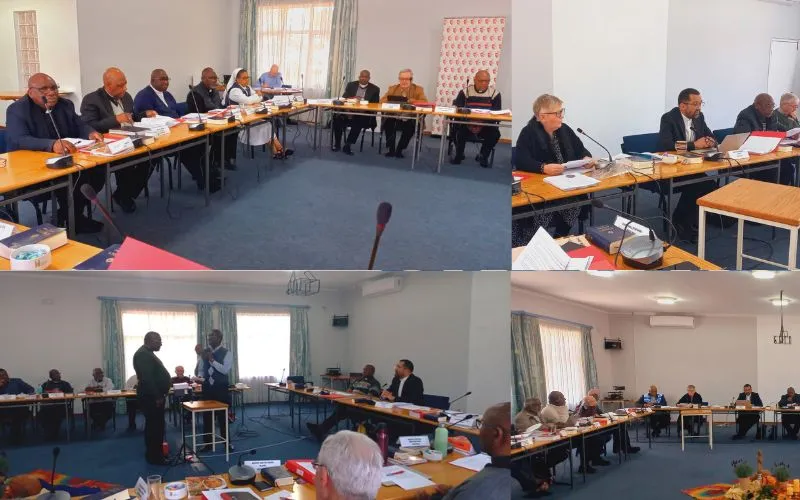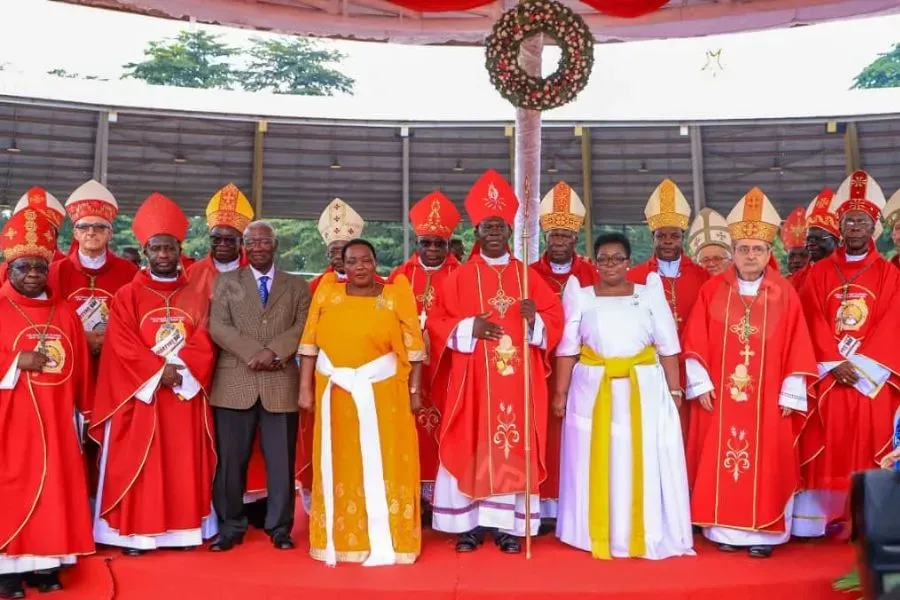In his opening address on Tuesday, August 6, Bishop Sipuka said that the shortage of vocations to the priesthood and Religious Life in the region has led to reliance on Priests and Religious from other countries.
“We have a huge shortage of vocations to priesthood and religious life and rely heavily on priests and religious from other countries for parish supply and other ministries,” he said, adding, “In most Dioceses, over half of the priests and religious are from different countries.”
In addition, he said, “Catholics in our conference are in the minority, and with a lot of unemployment, our faithful are not able to support the church sufficiently; for this reason, we struggle to have enough financial resources to carry out evangelization.”
Bishop Sipuka said that the struggle that Catholic institutions are facing in the Southern African region amount from financial difficulties.
The challenge, he said, has also affected institutions of higher learning and media institutions, which the Bishop said are having difficulties in surviving.
Highlighting efforts of SACBC to address the challenges, the 64-year-old Bishop who has been at the helm of the Southern African Diocese since his Episcopal Ordination in May 2008 said, “We we have mandated a team…which we call the ‘future vision team’ to explore possibilities of cooperation among Catholic institutions in the conference area, which will hopefully lead to consolidation of resources for maximum results.”
He added, “We also have successful fundraising initiatives by the Catholics of our area in the form of Lenten Appeal and Bishops’ Foundation. We are struggling but trying to be creative in moving forward.”
The SACBC president disclosed to the new Nuncio the conference’s new project of demarcation of dioceses. He said that there have been many social, political, and economic changes that have made the present boundaries of the dioceses “impractical and irrelevant.”
Bishop Sipuka said that the project that began six years ago is gradually losing momentum partly because of its complexity. “I also think it is because of our attachment to our Dioceses. The last time this was discussed, it was proposed that it be escalated to the Holy See to oversee it,” the Local Ordinary of South Africa’s Mthatha Diocese said.
He explained, “By overseeing, we mean that consultation will still be done and broad consensus sought, but the Holy See will finally decide. Otherwise, if this project is left to us, it may not see the light of day. With your arrival, Your Excellency, we hope to take this demarcation issue further.”





